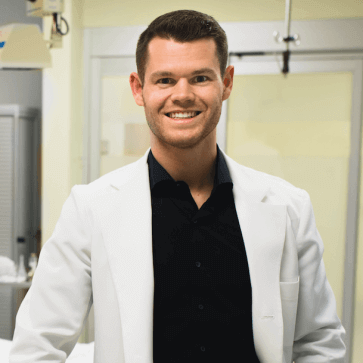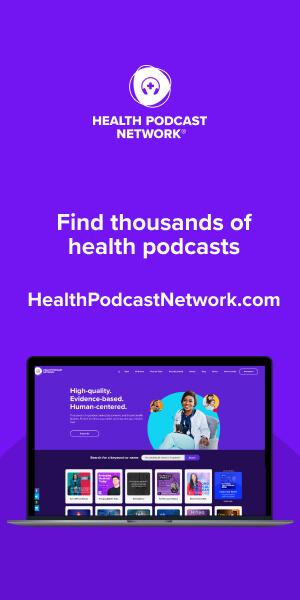The spotlight is on Germany as the Digital Supply Act is adopted
It must be very exciting to be an attendee of DTx Event in Berlin, taking place December 3-4, 2019. As Digital Health Tools (DHT) will be reimbursed to patients starting Q2 2020 in Germany, a few hundred Key Opinion Leaders will gather from across Europe (and beyond) to participate in the evolution of this growing industry.
On November 8, 2019, the Digital Supply Act was adopted in Germany. It will enable patients to obtain financial coverage for DHTs – such as Class 1 Software as a Medical Device (SaMD) and Digital Therapeutics – when prescribed by their providers.
Germany uses the concept of Patient-Reported Outcome Measures (or PROMs), a type of Real-world Evidence. Therefore, manufacturers will have to gather data on patient outcomes. By making sure patients get the most out of their DHT, the manufacturers will be able to leverage PROMs generated in a 12-month period (while being paid for the population using their tool) in order to negotiate the final payment with payors.
According to publicly-available documents, PROMs are defined by the Act as “increased access to care, increased quality of life (QoL), reduction in care consumption, etc.”
Therefore, choosing the right PROM to track (and how to track it) will be of a major importance, as it will be key in the negotiation with payors at the end of the “measurement period”. Will DTx Berlin help in that matter?
Will this be enough to get clinicians onboard?
To obtain reimbursement, a DHT must be prescribed to a patient by a physician. To help physicians, German officials will publish vetted apps through some sort of app formulary. This formulary could become accessible through a clinician’s Electronic Medical Record (EMR), but not exclusively, as the German physician’s adoption to EMRs remains relatively low as of now.
Little information is available on how frequently German clinicians discuss DHT with their patients. Moreover, we do not know how many clinicians are ready and willing to prescribe apps. In the US, according to a survey conducted by PwC in 2018, 56% of physicians brought the subject of using health-related apps with their patients at least once a year. Will this statistic apply to the German market?
Our observations show that in order for clinicians to get onboard with Digital Health Tools, clear recommendations from peers or guidelines are necessary. In order words, the vetting process must include several key opinion leaders (KOL) which are also prescribers. This process, if done correctly, might be the answer to proper physician on-boarding.
Who will be vetting Digital Health Tools? Are the NHS and the Germany Federal Institute for Drugs (BfArM) using the same vetting approach? What will be evaluated?
A study conducted in 2018 by Lee and Kim, Method of App Selection for Healthcare Providers Based on Consumer Needs, mentions that quality is in the eye of the beholder. As a matter of fact, in this study, three groups (app experts, clinicians and patients) were asked to rank the 5 best apps in a preselection of 369 prescribable apps. Unsurprisingly, the three groups had a different selection, experts ranking higher apps with good privacy features and clinicians and patients preferring apps with great user experience (UX).
On Germany’s Federal Institute for Drugs and Medical Devices (BfArM) side, it is now known that it will be in charge of testing apps for “safety, functionality, quality, data security and data protection”. These topics are also used by other regulatory bodies and private groups when it comes to analyzing DHT. One may question also the potential of adding Behavior Change Potential as a key topic to analyze, as it becomes a very important component, especially in Chronic Conditions, among others. At Therappx we make sure that this aspect is considered before adding an app to our formulary, as does Australia’s Vic Health.
It will also be interesting to see whether or not BfArM will outsource the evaluation process to other entities like the NHS recently announced. In Germany, two groups seem to be involved in the curation of health apps (AppCheck and Health.On). No matter who performs these evaluations, working with a team of tech-savvy clinicians that use these apps in clinical settings is definitely a must.
Will this be enough for patients to onboard with these tools?
If patients don’t love and trust the experience enough to sustain engagement over long periods, many of these therapies—and products—will fail. – IDEO, 2019
According to the same survey performed by PwC for providers, 26% of doctors mentioned that one of their patients asked about a given DHT during a consultation. Examples included tools that would help them reduce symptoms of anxiety, sleep better or improve their A1c. This is interesting enough, as many studies describe the need for patients to obtain approval from their clinicians to onboard and feel comfortable using a given DHT.
In Germany, one factor that may lead to better patient on-boarding is a new obligation imposed on Health insurance funds. Those funds will have to promote Digital Health Literacy to their members. This means that efforts will have to be made to educate clients (or patients) on how to use technology adequately to improve health outcomes.
We expect this insurers’ involvement to raise awareness from both patients and prescribers towards the DHT offering.
An ecosystem involving all stakeholders (payors, regulators, clinicians and patients) is definitely key on the scalability of best-in-class DHTs and in making sure patients and the healthcare system as a whole benefit from key technological innovations. Germany: the whole world is watching. Now is the time for you to show us all the way into digitally-enabled value-based care!
About the DTx Events
As a member of the Digital Therapeutics Alliance Healthcare Providers Group, I had the chance to attend several DTx Events in the last couple months. It’s the ideal occasion to meet industry leaders as the quality of attendees is prioritized over the number of participants. This is actually how I learned last fall about IESO’s launch of the “Eight Billion Minds” tool, leveraging hundreds of thousands of hours of bidirectional conversation between clinicians and patients. This is also how I met with Bret Vaughan, CEO of Cognoa, to discuss their recent announcement of leveraging Eversana for the go-to-market strategy of their FDA-cleared autism digital therapeutic. Indeed, regrouping CEOs, CMOs and CTOs that gather around tables to discuss go-to-market strategies and past experiences in getting their products in the hands of patients or clinicians makes it a priceless event.





